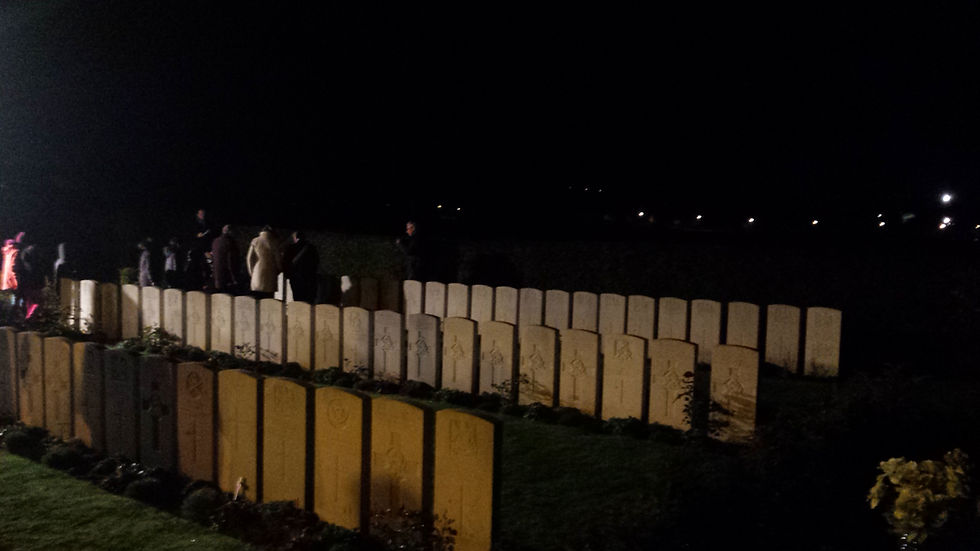Wilfred Owen Commemoration
- Simon Davies
- Nov 4, 2016
- 2 min read
98 years today, the soldier and poet Wilfred Owen was killed in action during the First World War as he tried to lead his men of the Manchester Regiment across the Sambre-Oise canal in Ors, northern France. Just one week before the Armistice of 11th November 1918, he probably fell even before the sun rose on that fateful day. This evening, I was fortunate enough to attend the commemoration ceremony held in Owen’s honour at his graveside in Ors, and at the local community hall. In attendance were Jacky Duminy, the town’s mayor, and Peter Owen, the poet’s nephew and President of the Wilfred Owen Association in the UK.
During his speech to the French and English delegations present, Mr. Owen presented the mayor and the people of Ors with a bronze portrait of Wilfred Owen as a way of saying thank you for all the hard work carried out by them over the years to honour the poet’s memory. Indeed, and as Mr. Owen reminded us all, it was back in 1987 that Monsieur Duminy’s attention was first drawn to the presence in Ors cemetery of such a renowned and celebrated writer. Since that time, much has been done by the local community to bring Owen to the attention of the French people, culminating in the opening of the Forester’s House in 2011. This house, in which visitors can enjoy an audio-visual spectacle of his work, is also the place where Owen spent his last night before his untimely death, and where he wrote his last letter to his mother.
To conclude his speech, Mr. Owen chose to read out 2 poems by the writer: “Spring Offensive” and “Futility”. French translations of these poems were also read out by Owen’s official translator, Xavier Hanotte.
“Spring Offensive” is a magnificent account before, during and after an attack. As the poem begins, many of the soldiers described in the poem are initially “lying easy”, “at ease” as they “carelessly slept”. More ominously, perhaps, others are, “stood still / To face the stark, blank sky beyond the ridge, / Knowing their feet had come to the end of the world.”
Their rest is short-lived, however, as war soon catches up with them. In an instant, it seems that the serene Nature scene has been transformed into a nightmarish vision of Hell: “the long grass swirled / By the May breeze, murmurous with wasp and midge” quickly gives way as “the whole sky burned / With fury against them; and soft sudden cups / Opened in thousands for their blood”.
For me, the most remarkable part of the poem is at the beginning of the last stanza. In just a few lines, Owen manages to convey great emotion as he describes how many of the soldiers meet their ultimate fate:
Of them who running on that last high place
Leapt to swift unseen bullets, or went up
On the hot blast and fury of hell’s upsurge,
Or plunged and fell away past this world’s verge,
Some say God caught them even before they fell.
The scene described is terrible and yet intensely moving at the same time.
© 2016 Simon Davies































Comments